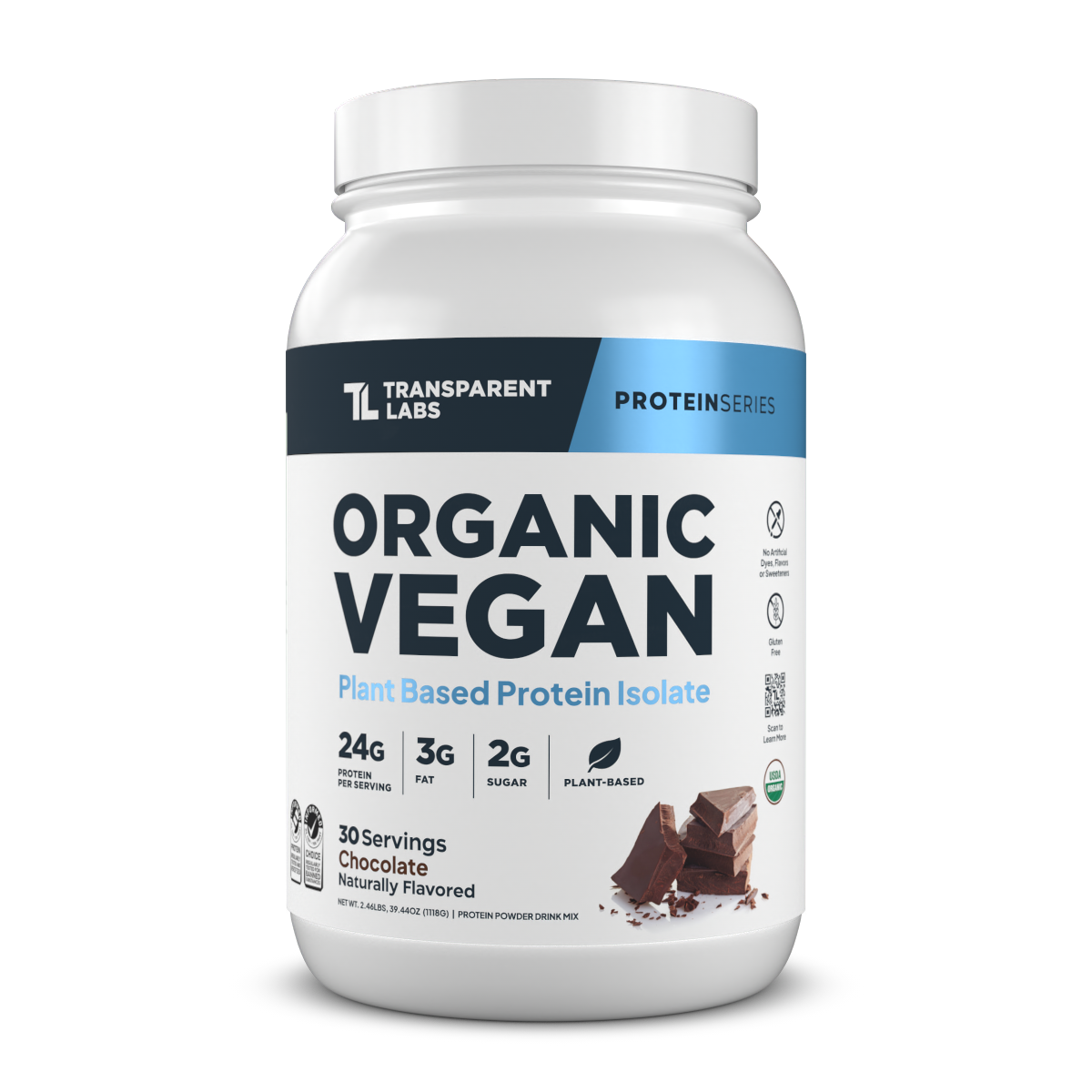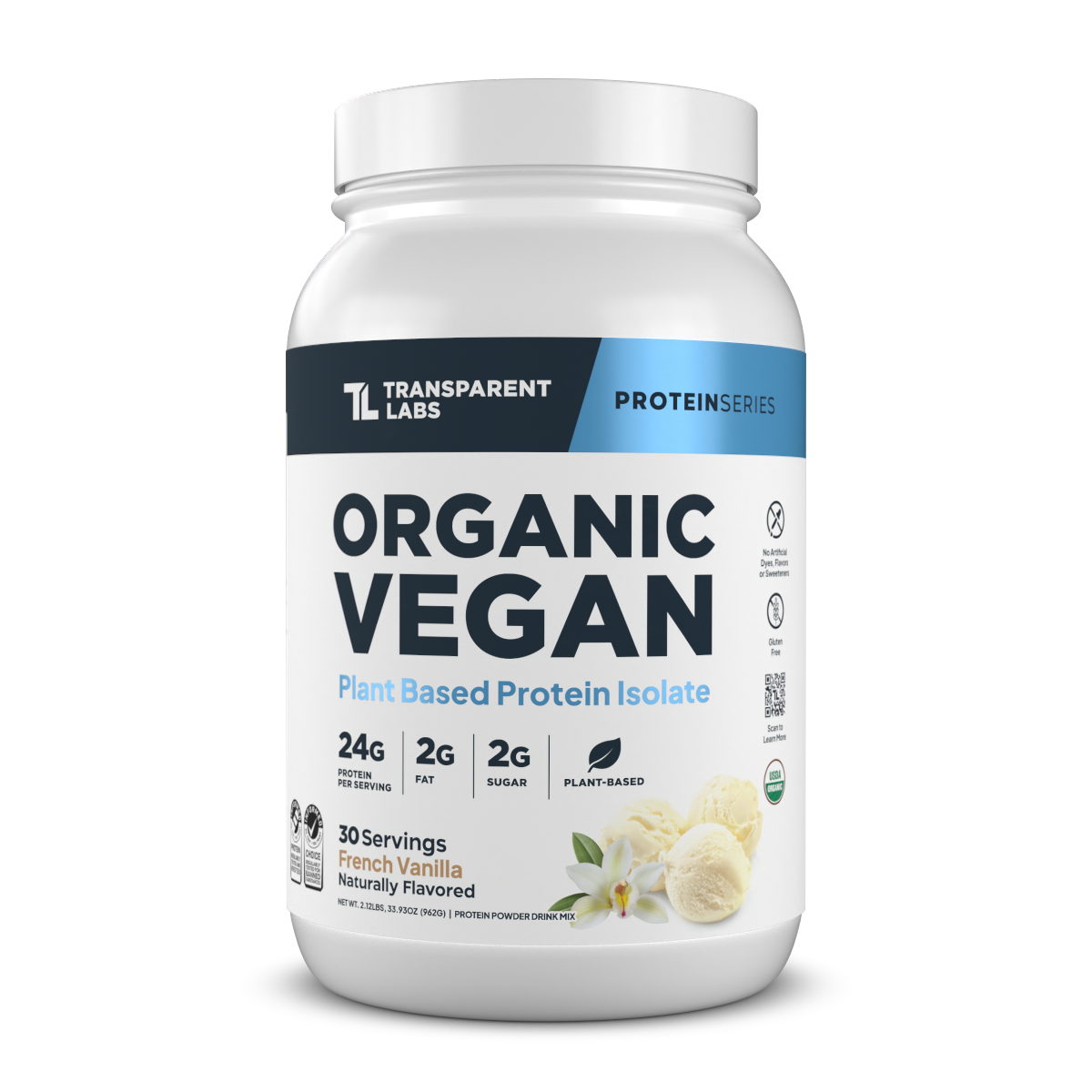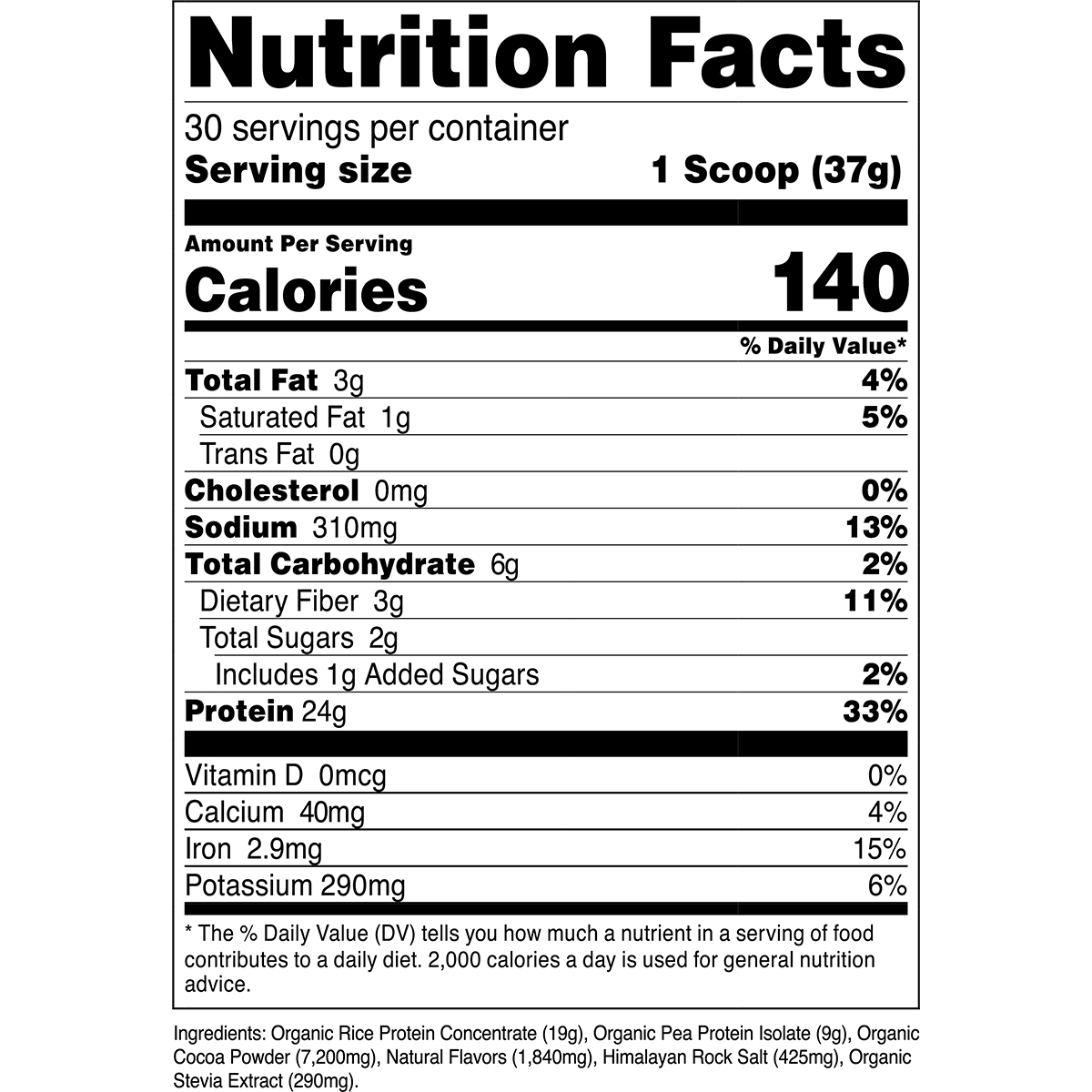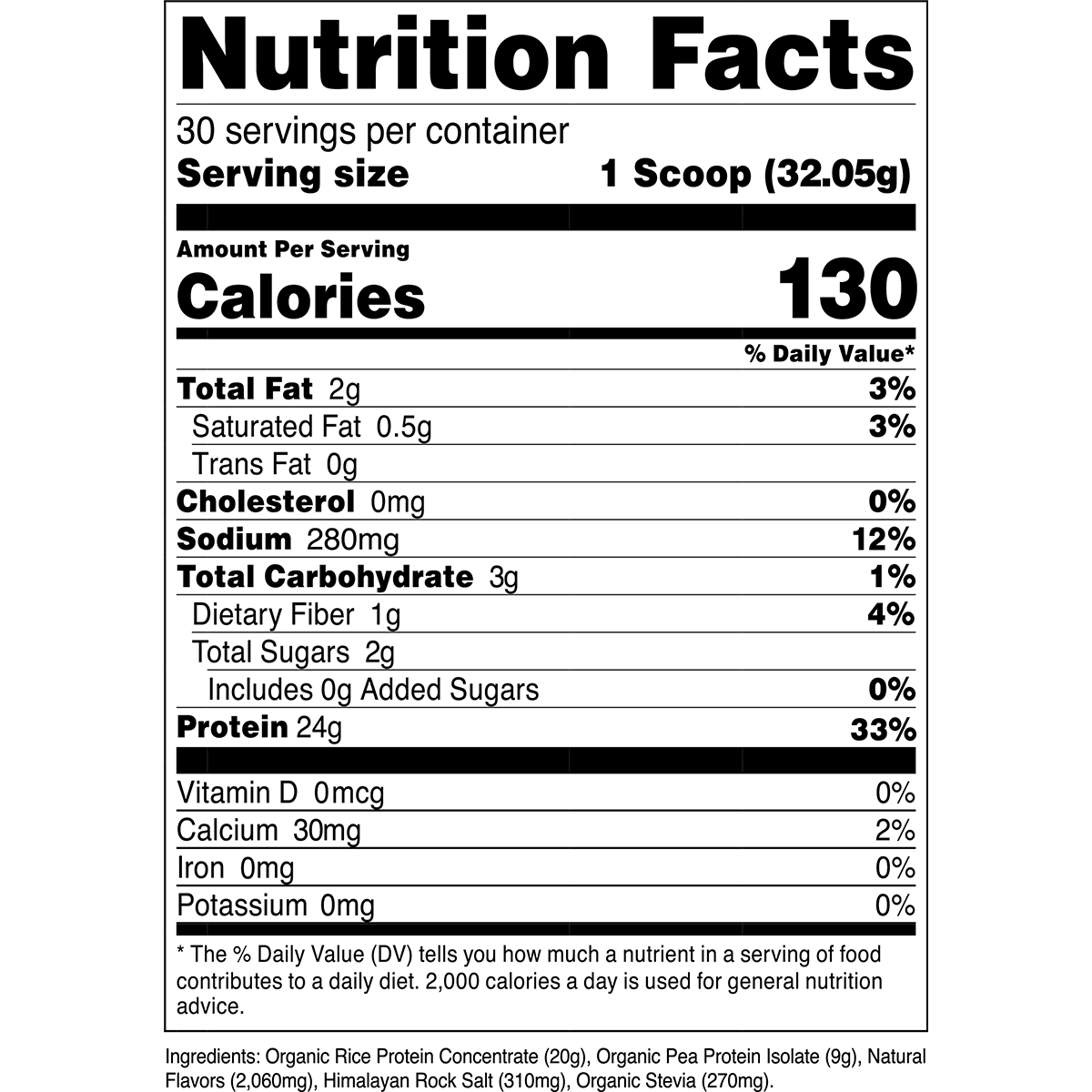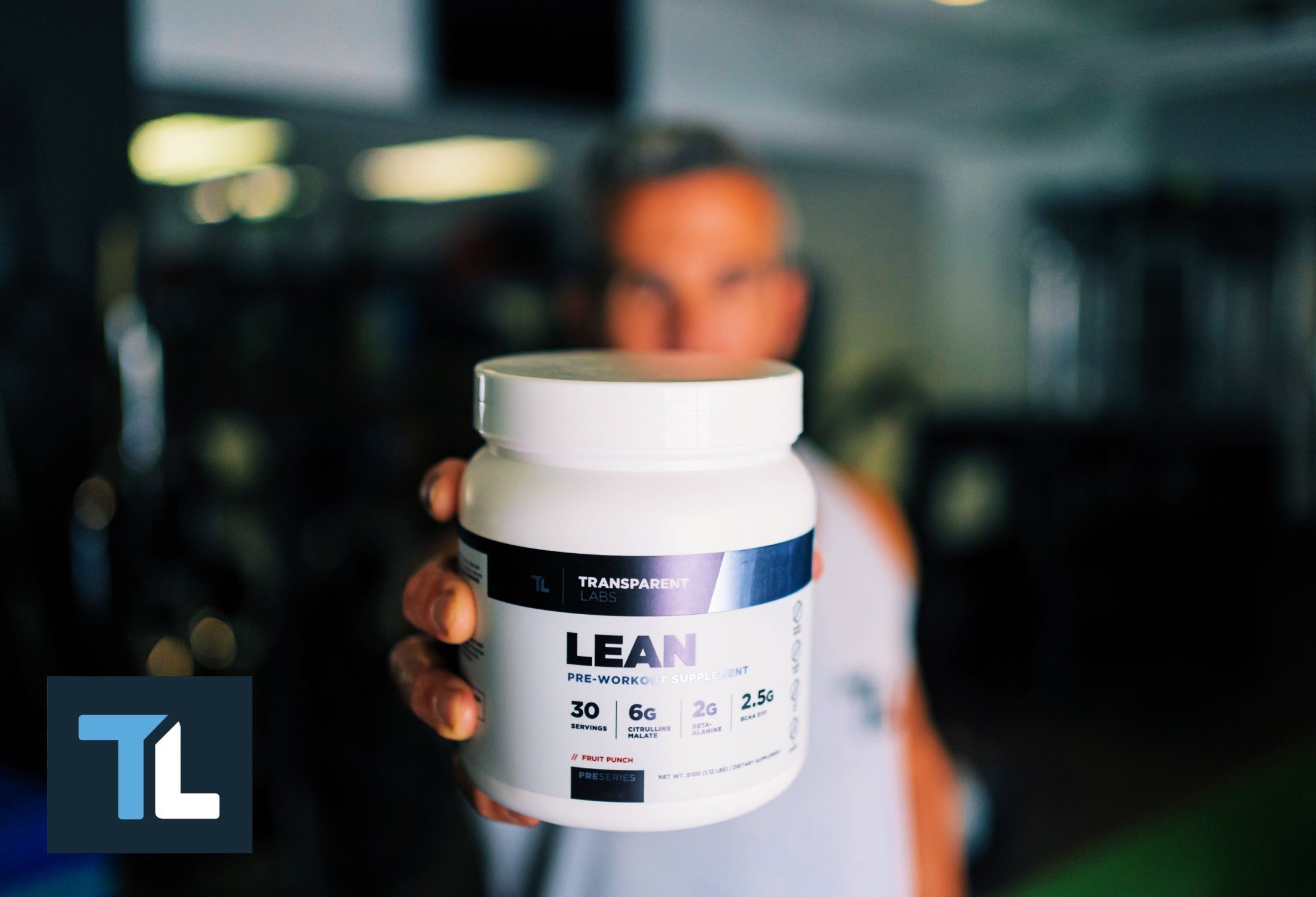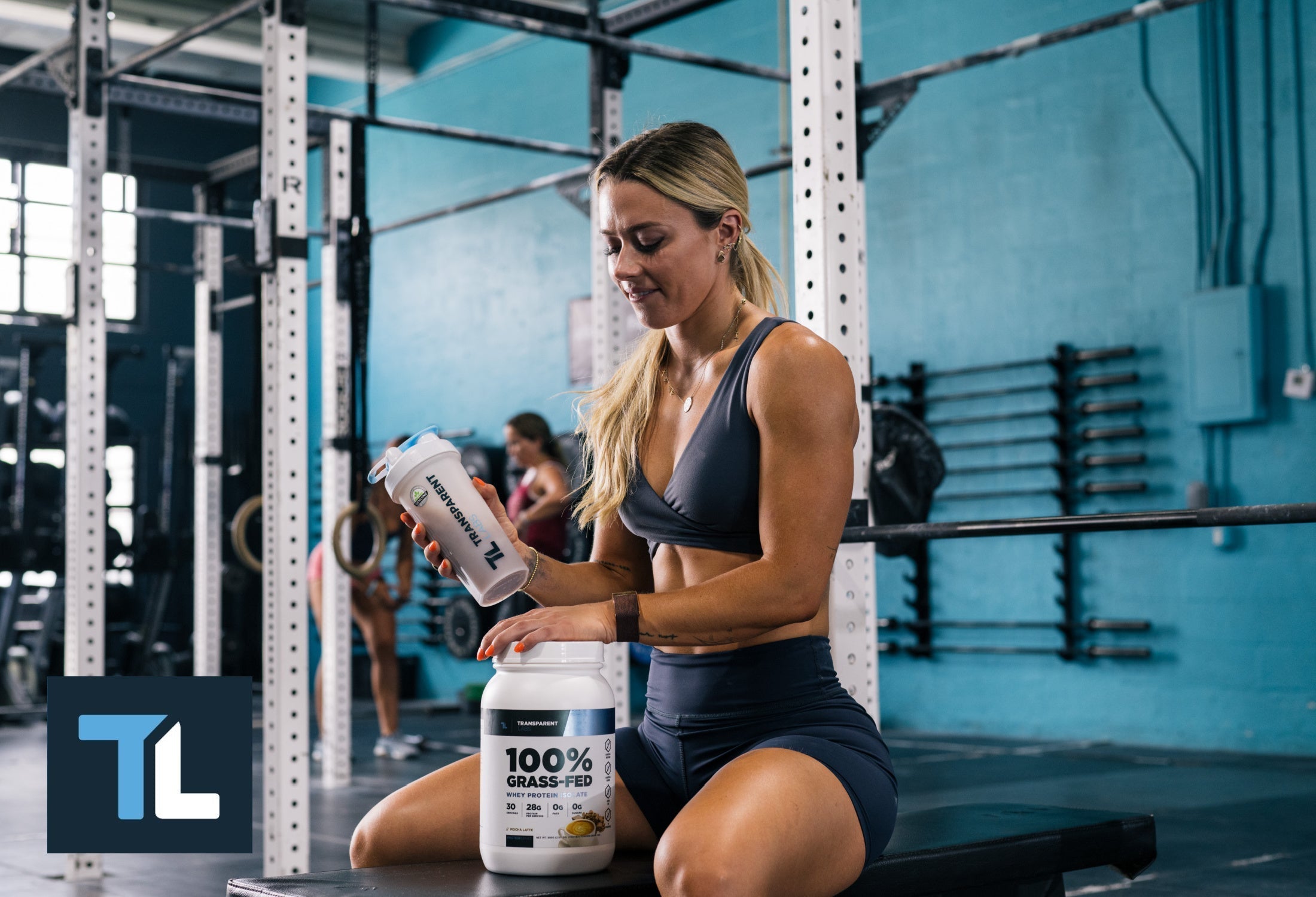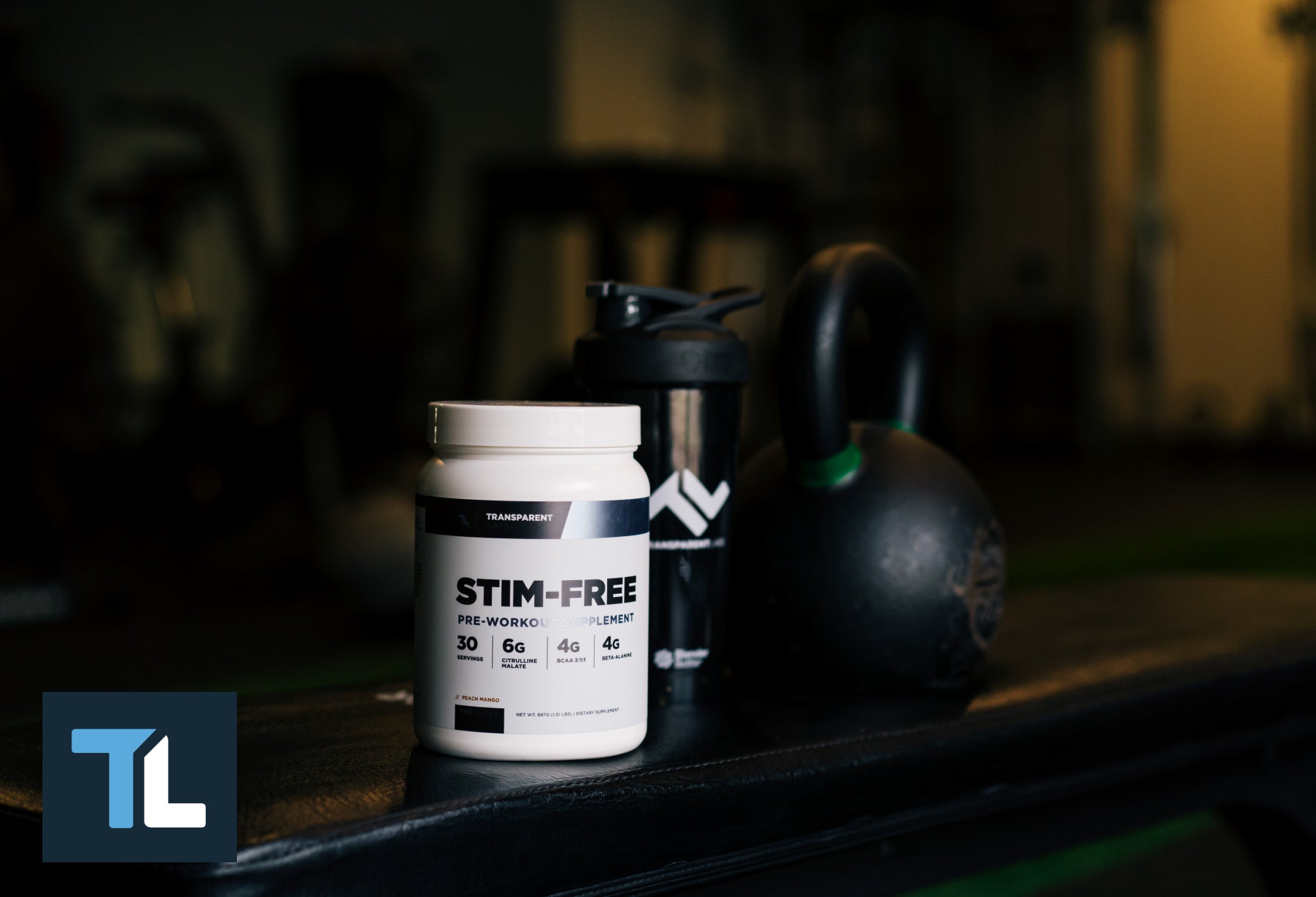It may seem counterproductive to be on a vegan diet for bodybuilding purposes, but the reality is many athletes and gym-goers are turning to plant-based meal plans to improve their performance and muscle gains. While you're not going to find a ton of pro-level vegan bodybuilders or powerlifters, there is no reason to believe you can't build muscle and get stronger while following a plant-based diet.
Rather than crowning a unanimous "winner" in the contentious debate of plant-based vs. animal-based diets, this article will take a look at the science and research behind a vegan bodybuilding diet plan and plant-based diet for athletes, as well as potential drawbacks for vegan bodybuilders to consider and how to address them.
Plant-Based Diet vs. Vegan Diet: What's the Difference?
If you've had the chance to read our comparison of paleo vs. keto vs. whole30, then you're likely familiar with vegan and plant-based diets. If not, here's a quick overview of the differences between vegan and plant-based meal plans:
- Vegans consume nothing but plant foods — no animal or animal-derived products.
- A plant-based advocate is not necessarily a strict vegan. The term "plant-based" is somewhat ambiguous; it may broadly refer to a diet with a finite amount animal-derived foods (e.g. dairy, eggs, and meat) or one that is essentially 100% vegan.
- Vegetarians are those who consume plant foods and a limited selection of animal-based foods, typically eggs, cheese/dairy, and seafood.
Carnivore Diet vs. Vegan Diet: Are They Healthy?
On the opposite end of the spectrum from plant-based and vegan diets is the carnivore diet, which includes only meat and no plant foods. In other words, the carnivore diet is a plant-free diet. It is technically a variation of a ketogenic diet since meat is typically high in fat and protein but has no carbs.

Meat-eaters, especially carnivore diet apologists, often argue that veganism is suboptimal for building muscle since animal foods are superior sources of protein. But does it really make that much of a difference for vegan bodybuilders?
The carnivore diet is mostly just another example of the extremes people will go to when they read positive anecdotes on the Internet from pseudo-experts. There is (very) minimal research on plant-free diets in humans, and most of the studies have been clinical case studies or retrospective observations of Arctic and nomadic societies (R).
About all we can say at this point is that humans can meet all of the acute essential nutrient needs from animal meats, especially organ meat, but the long-term health consequences remain unknown.
Some might argue that a vegan diet also has inherent flaws. You can find all the essential nutrients in plant foods, but people who follow strict vegan diets are typically at a greater risk of micronutrient deficiencies, especially vitamin D, calcium, zinc, and iron (R, R, R).
Moreover, the corollary increase in dietary fiber intake on a vegan diet can lead to digestive and gastrointestinal complications in susceptible individuals. Dietary fiber and phytates from legumes are also known to interfere with micronutrient absorption (R).
Plant-Based or Plant-Free: What Science Has to Say
When comparing a vegan diet to a carnivore diet, there is much more scientific and clinical data backing the former than the latter. A recent research review contends that "results so far suggest that the long-term health of vegetarians is good, and may be better than that of comparable nonvegetarians for some conditions and diseases such as obesity and heart disease." (R)
Note that most of the literature to this point has focused on plant-based vegetarian diets, not a strict vegan diet. There are gaps in our understanding of the long-term health effects of raw vegan diets. In any case, it's tough to argue against a plant-based or vegan-bodybuilding diet plan.
A plant-free diet appears to be a suitable intervention in limited circumstances, such as patients with autoimmune diseases that require unique nutrient intakes.
In small subpopulations, following a plant-free diet could be beneficial as an interim meal plan. Still, there are several compelling arguments you could make to discredit the carnivore diet, at least as a long-term nutrition approach.
Vegan Diet for Beginners: Benefits and Potential Drawbacks
Even if you already follow a vegan diet for ethical and eco-conscious reasons, you might not be up to speed on how a vegan diet affects your long-term health. There are numerous benefits from eating more plant-based foods, but a strict or raw vegan diet is not without potential drawbacks.
Here are the salient health benefits of vegan and plant-based diets, according to science:
Improve Cardiovascular Function
Cardiovascular disease (CVD) is the leading cause of death in the United States. Yep, you read that right — not cancer, not diabetes, not car accidents — CVD is what kills most of the U.S. population every year.
Naturally, more people are taking an interest in their heart health. A vegan or plant-based diet may be just what the doctor ordered.
A collaborative analysis of five studies — enrolling a cumulative 75,000+ men and women — suggests that vegetarians (which, by extension, includes vegans) are at a 26% lower risk of cardiovascular disease (CVD) than non-vegetarians (R). The researchers found that the reduced risk of CVD in vegetarians was significant even after adjusting for body mass index (BMI) and other lifestyle factors like smoking and alcohol consumption.
Another study estimates that the risk of heart disease throughout the lifespan is 57% lower in strict vegans than habitual meat-eaters (R). Vegans also tended to have healthier blood pressure readings and lower BMIs than meat-eaters.
Decrease the Risk of Type-2 Diabetes
It's well-established that a higher intake of vegetables, legumes, and foods rich in alpha-linolenic acid (ALA) — such as walnuts and chia seeds — is associated with significantly lower risks of type-2 diabetes and insulin resistance (R).
Furthermore, a sizeable cohort study found that women who consumed three servings of meat per day were nearly twice as likely as non-meat-eaters to develop type-2 diabetes (R).
Improve Blood Lipid Profiles and Lower Blood Pressure
An abundance of data shows that consuming 5-10 servings of vegetables and fruits per day improves blood pressure (R). Moreover, strict vegans have a lower rate of hypertension than regular meat-eaters and other vegetarians (R).
Blood lipid profiles and cholesterol also are consistently healthier in those who consume a plant-based diet. Of particular note is that soy intake reduces LDL cholesterol (the "bad" type), and protects against heart disease (R). Male vegan bodybuilders may shy away from soy in fear of its putative estrogenic effects, but that's really only an issue if you're consuming large amounts of soy (i.e. 50+ grams) daily (R).
May Reduce the Risk of Cancer
For females, a vegan diet that emphasizes more soy-based food may reduce breast cancer risk (R). However, an analysis of eight cohort studies found no significant associations between breast cancer risk and intake of meat or dairy products (R).
Nonetheless, epidemiologic studies continually show that fiber, fruits, and vegetables all drastically reduce cancer risk (even tobacco-related cancers) (R).
Tips for Vegan Bodybuilders

As you can see, a vegan diet may provide a range of health benefits, but what does it lack? We technically can meet all of our essential nutrient demands through plant foods. However, some vegan bodybuilders might be missing out on crucial vitamins, minerals, and essential fatty acids (EFAs).
Follow the tips below to avoid nutrient deficiencies on a vegan bodybuilding diet plan:
Consume Plenty of Alpha-Linoleic Acid (ALA) and Plant-Based Docosahexaenoic Acid (DHA)
Your body needs essential fatty acids (EFAs) to function properly. These fatty acids are integral components of the phospholipids that protect your cells and maintain biological processes in vital organs, especially the brain. Unfortunately for vegans, one of the critical omega-3 EFAs - eicosapentaenoic acid (EPA) - is found mainly in seafood and egg yolks.
However, a plant-based omega-3, alpha-linolenic acid (ALA), helps your body convert docosahexaenoic acid (DHA) into EPA (R).
Walnuts, chia seed, and flaxseed are some of the most dense ALA sources and should be a staple in your vegan bodybuilding diet. Vegan sources of DHA include seaweed (nori) and algaeIt might be worth investing in a plant-based DHA supplement if you're not keen on taking fish or krill oil.
Calcium and Vitamin D Are Key
Naturally, you won't be eating any dairy or meat if you're a vegan bodybuilder, meaning you'll need to reconsider your calcium and vitamin D sources.
Research shows that vegetarians have significantly lower bone density than non-vegetarians, which is likely a consequence of inadequate protein and calcium intake (R). Strict vegans also tend to have low vitamin D status (R).
So, what's the solution? Well, focus on eating plenty of plant-based sources of these micronutrients. Soy-based foods, such as edamame and tempeh, are generally high in calcium, as are beans, peas, and lentils (R). For vitamin D, you'll likely need to include some fortified foods, like cereal. It might be beneficial to take a vitamin D3 supplement, just to be on the safe side.
Improve Iron and Zinc Absorption
Iron and zinc are crucial minerals for vegan bodybuilders. The problem is that the absorption of iron and zinc may be reduced by a vegan bodybuilding diet due to organic compounds known as phytates (found primarily in plant seeds and legumes) (R).
Thankfully, there's a simple workaround: supplement with vitamin C. Vitamin C facilitates zinc and iron absorption by inhibiting the action of phytates on these minerals (R). Alternatively, start each meal with foods rich in vitamin C, such as citrus fruits, broccoli, and leafy greens.
Vegan Bodybuilding Meal Plan: Plant-Based Foods to Eat
Below you'll find a comprehensive list of high-protein vegan foods to help you build muscle and recover properly. It's split into separate plant-based food categories so you can identify which to include in your vegan bodybuilding meal plan.
It might be wise to look up food items and portion sizes in a nutrition database or food-tracking app to ensure you're reaching your calorie and macronutrient needs for building muscle on a vegan diet. The laws of thermodynamics still apply regardless if you're going the herbivore route.
Fruits and Vegetables
- All varieties (duh!)
Vegan Protein Sources
- Tofu
- Tempeh
- Vegan protein powder (e.g., pea protein and rice protein)
- Legumes
Vegan Fats Sources
- Coconut oil
- Coconut milk
- Avocados
- Avocado oil
- Extra-virgin olive oil
- Sesame seed oil
- Nuts and seeds
- Nut butter (macadamia, soynut, peanut, almond, cashew, etc.)
- Macadamia nut oil
- MCT oil
- Vegan Butter
- Flaxseed oil
- Olive oil (extra-virgin)
Vegan Beverages
- Unsweetened tea (herbal, green, black, rooibos, etc.)
- Sugar-free soda sweetened with stevia
- Sparkling water
- Mineral water
- Black coffee & espresso
Natural Zero-Calorie Sweeteners
- Xylitol
- Stevia
- Inulin fructooligosaccharide
- Erythritol
- Monk fruit extract
Vegan Condiments, Herbs and Spices
- Vinegar
- Raw cocoa powder
- Fresh herbs and spices
- Soy sauce
- Salsa
- Mustard
- Lemon juice and lime juice
- Natural flavor extracts
- Hot sauce
Is a Vegan Bodybuilding Diet Plan Optimal for Muscle Growth?
The reality is most bodybuilders and gym-goers greatly overestimate how much protein they need for optimal muscle growth. It's no surprise that vegan bodybuilders can flourish while eschewing animal products since most people — even highly active weight lifters — only require about 0.7-0.8 g of protein/lb of body weight per day to build muscle.
So, it's safe to say that a vegan bodybuilding diet is viable so long as you eat adequate amounts of protein and calories. Initially, this may be a challenge for people who have always eaten foods like chicken, beef, and eggs to meet their protein needs. You'll also need to switch to a vegan protein powder if you currently use whey protein or casein protein.
When choosing a plant-based protein powder for your vegan bodybuilding diet plan, look for one that contains pea protein and rice protein isolates as these are arguably the best tandem for meeting all your essential amino acid needs. Transparent Labs Organic Vegan protein packs 24 g of organic pea protein and organic rice protein in every scoop, making it ideal for vegan bodybuilders and plant-based athletes alike.
Lastly, we can't dismiss the fact that there are myriad ethical and eco-conscious reasons people may switch to a vegan bodybuilding diet plan. Even if those reasons are personal and not directly health-related, they are important considerations.
All in all, if you're a vegan bodybuilder and love what a strict plant-based diet has to offer, then you should keep doing it! Frankly, the majority of the population could stand to eat more vegetables and fruits.



